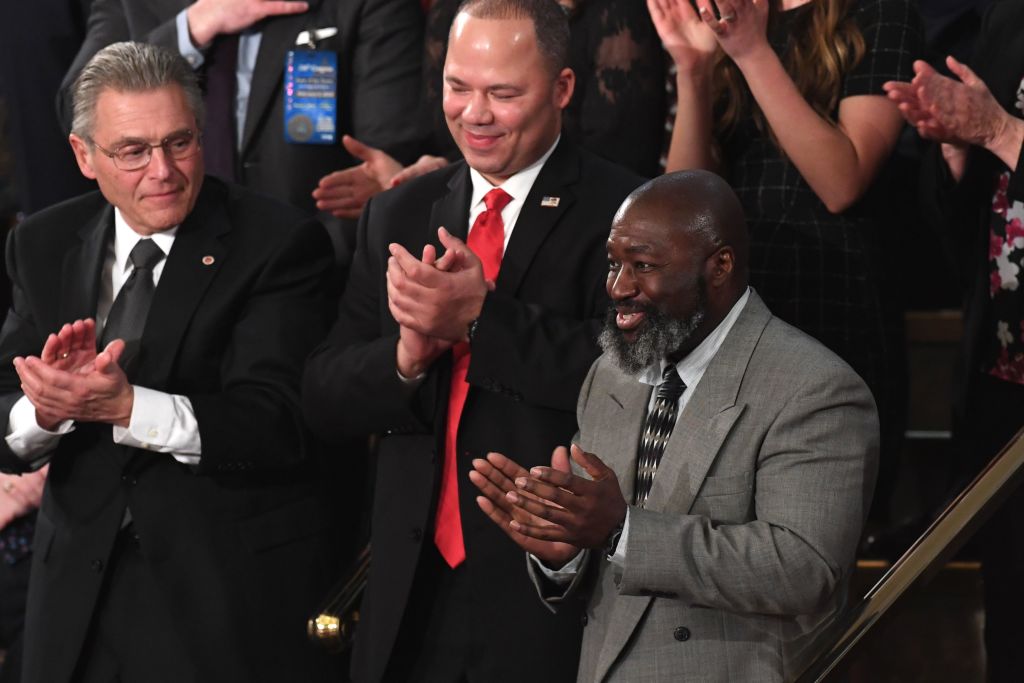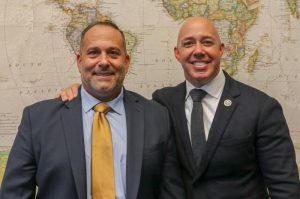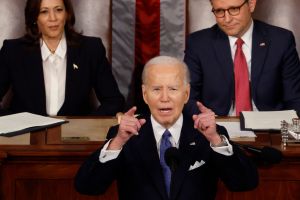President Trump’s State of the Union had some curious moments. At one point, the President decided to focus on one of his only legislative achievements, the First Step Act. This is a liberal criminal-justice reform championed by his son-in-law Jared Kushner.
‘We are also joined tonight by Matthew Charles from Tennessee. In 1996, at age 30, Matthew was sentenced to 35 years for selling drugs and related offenses,’ Trump said. ‘Now, Matthew is the very first person to be released from prison under the First Step Act. Matthew, on behalf of All Americans: WELCOME HOME.’
Charles received a standing ovation, and later told CNN that the moment was ‘amazing, almost equivalent to leaving prison.’
Moving stuff, but Trump omitted to mention the exact nature of Charles’s crimes. Charles sold crack cocaine to to a US soldier, who was in turn an alleged supplier for an army base.
Cockburn obtained a transcript of an appeals proceeding in 1997, one year after Charles’s conviction.
A special agent with the US Army testified that that the levels of crack cocaine in this case was ‘one of the largest’ that she had handled at Fort Campbell in Tennessee. Fort Campbell at Tennessee at the time had front-line troops: the sort that would be the first to deploy and Trump the GOP love to praise.
Did Charles know what he was doing?
The agent testified, ‘Yes, sir…[the undercover officer’s] cover story was as the Army recruiter…and [the supplier] portrayed himself as a soldier the entire time.’
According to a 2017 article from Nashville Public Radio, ‘Charles was involved in the distribution of 216 grams of crack cocaine.’ This is roughly $17,000 worth in street value.
Charles was not a petty criminal. He was sentenced to 35 years for the drug charges and owning two guns under an assumed name while as felon. Before this incident with crack cocaine, according to CBS, Charles had been to jail on convictions of domestic assault, kidnapping, and shooting a man in the head.
Charles found God in jail and reformed himself and that is all good. Cockburn believes in forgiveness above all. But Cockburn also can’t help but wonder at President Trump’s championing his case.
President Trump never presented himself to voters as some sort of libertarian or merciful man. In fact, Trump has previously called for the death penalty for drug dealers and has praised Filipino President Rodrigo Duterte’s violent war on drugs. If justice had been down to that version of Donald Trump, Matthew Charles would have been executed.
Trump, a builder, has always desired physical accomplishments he can point to: a wall, newly built factories, etc. Two years into his administration, he only has freed criminals.


















